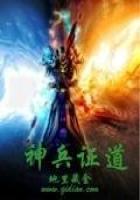Individuals existed for the benefit of the State; not the State for the benefitof individuals. In our days, however, not only has the national will beenin many cases substituted for the will of the king, but the exercise of thisnational will has been restricted. In England, for instance, though therehas been established no definite doctrine respecting the bounds to governmentalaction, yet, in practice, sundry bounds to it are tacitly recognized by all.
There is no organic law declaring that a legislature may not freely disposeof citizens' lives, as kings did of old, but were it possible for our legislatureto attempt such a thing, its own destruction would be the consequence, ratherthan the destruction of citizens. How fully we have established the personalliberties of the subject against the invasions of State-power, would be quicklyshown were it proposed by Act of Parliament to take possession of the nation,or of any class, and turn its services to public ends, as the services ofthe people were turned by Egyptian kings. Not only in our day have the claimsof the citizen to life, liberty, and property been thus made good againstthe State, but sundry minor claims likewise. Ages ago laws regulating dressand mode of living fell into disuse, and any attempt to revive them wouldprove that such matters now lie beyond the sphere of legal control. For somecenturies we asserted in practice, and have now established in theory, theright of every man to choose his own religious beliefs, instead of receivingState-authorized beliefs. Within the last few generations complete libertyof speech has been gained, in spite of all legislative attempts to suppressor limit it. And still more recently we have obtained under a few exceptionalrestrictions, freedom to trade with whomsoever we please. Thus our politicalbeliefs are widely different from ancient ones, not only as to the properdepositary of power to be exercised over a nation, but also as to the extentof that power.
Nor even here has the change ended. Besides the average opinions justdescribed as current among ourselves, there exists a less widely-diffusedopinion going still further in the same direction. There are to be foundmen who contend that the sphere of government should be narrowed even morethan it is in England. They hold that the freedom of the individual, limitedonly by the like freedom of other individuals, is sacred. They assert thatthe sole function of the State is the protection of persons against one another,and against a foreign foe; and they believe that the ultimate political conditionmust be one in which personal freedom is the greatest possible and governmentalpower the least possible.
Thus in different times and places we find, conceding the origin, authority,and functions of government, a great variety of opinions. What now must besaid about the truth or falsity of these opinions? Must we say that someone is wholly right and all the rest wholly wrong; or must we say that eachof them contains truth more or less disguised by errors? The latter alternativeis the one which analysis will force upon us. Every one of these doctrineshas for its vital element the recognition of an unquestionable fact. Directlyor by implication, each insists on a certain subordination of individualactions to social dictates. There are differences respecting the power towhich this subordination is due; there are differences respecting the motivefor this subordination; there are differences respecting its extent; butthat there must be some subordination all are agreed. The most submissiveand the most recalcitrant alike hold that there are limits which individualactions may not transgress -- limits which the one regards as originatingin a ruler's will, and which the other regards as deducible from the equalclaims of fellow-citizens.
It may doubtless be said that we here reach a very unimportant conclusion.
The question, however, is not the value or novelty of the particular truthin this case arrived at. My aim has been to exhibit the more general truth,that between the most diverse beliefs there is usually something in common,-- something taken for granted in each; and that this something, if not tobe set down as an unquestionable verity, may yet be considered to have thehighest degree of probability. A postulate which, like the one above instanced,is not consciously asserted but unconsciously involved, and which is unconsciouslyinvolved not by one man or body of men, but by numerous bodies of men whodiverge in countless ways and degrees in the rest of their beliefs, has awarrant far transcending any that can be usually shown.















